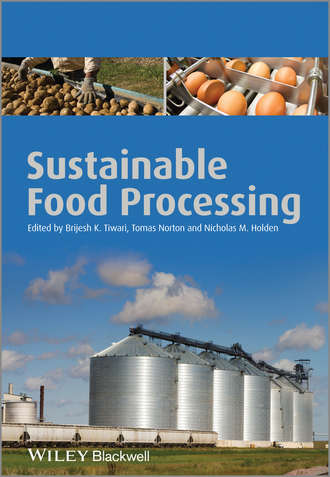
Полная версия
Sustainable Food Processing
With global inequalities becoming more pronounced, ingredient costs climbing, and global warming a major political issue, food producers must now address environmental concerns, social responsibility and economic viability when designing their food processing techniques for the future. Sustainable food processing is all about finding new ways of meeting present needs without comprising future viability, given constantly changing economic and environmental conditions. This is not just a corporate social responsibility issue, but relates directly to efficiency, cost-saving and profitability, and so the food industry must increasingly embrace sustainable food processing in order to succeed. This book provides a comprehensive overview on both economic sustainability and environmental concerns relating to food processing. It promotes ways of increasing sustainability in all the major sectors of the food industry, and will establish itself as a standard reference book on sustainable food processing. It will be of great interest to academic and industrial professionals. Opening chapters cover the concept and principles of sustainable food processing, with reference to various food processing sectors (dairy, meat, seafood, grain, fruit and vegetables). Further chapters on brewing, cold chain, consumption and packaging provide a comprehensive guide to making these key processes more sustainable. Issues such as cleaning, sanitation, and carbon footprint are discussed, before dedicated chapters covering energy and water consumption in the food industry address economic sustainability. Environmental impact assessment and food processing, waste utilization, risk assessment, and regulatory and legislative issues are also addressed. Contributors include a combination of leading academic and industrial experts, to provide informed and industrially relevant perspectives on these topics.

